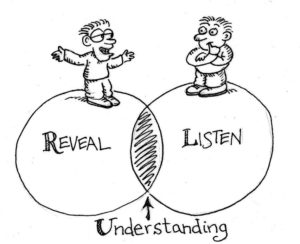Tim Sackett released a tweet last week about a Gen Z coworker not knowing what Kinko’s was. That coworker was me — GUILTY!
I have to admit, maybe my lack of awareness of Kinko’s is due to my age, or maybe it’s due to the fact that I grew up in a very small, rural town and the closest office supplies/copy center was a Staples a few towns over. Regardless, the tweet got a lot of traction and the comments were super funny. Many of them however, took shots at Gen Z showcasing some common misconceptions of the generation .
Below are a few comments that stood out to me that I thought I would address so that employers of Gen Z’s have a better understanding of them and can refrain from making the same misconceptions.
“Ok so where’s the new cool place to get copies made? What are all the cool kids doing?”
Staples.
“Did you ask your GenZ to fax a copy, too? ![]() “
“
Honestly, If you asked me to fax something today I would probably ask for a refresher on how to fax something or I would have to google it. Truth be told, I’ve only faxed something twice in my life and I was doing it for a teacher back in grade school my Freshman year — This was in 2010.
Like the saying goes, “If you don’t use it, you lose it”. The reality is that we haven’t had to grow up faxing things. To us, faxing is basically an archaic way of sending documents.
“I’m surprised your co-worker didn’t just Google “Kinkos””
Gen Z’s love to Google. It’s a fast and easy way to get information. So yes, we Google the heck out of everything to get immediate answers.
“And then you can rent a movie at Blockbuster”
Sometimes people forget that the oldest of the Gen Z’s are in their 20’s and do remember a time with Blockbuster, VHS, no flat-screen computers or TV’s, and the rareness of cell phones.
Technology was advancing at an incredible speed when the oldest of us were growing up. A phone one day looked nothing like a phone a year later nor had the same capabilities. The same goes for music devices, computers, TVs, ect.
“Someone asked me how to make a copy today, same deal. I told her that was half of my work as an intern and asked her to take an educated guess.”
Honestly, I don’t make copies very often. In grade school, you don’t need to make copies for anything and most high school students work in food or retail service not in an office setting where copies are typically made. I can’t even remember a time in college when I really needed to make copies. However, making copies is not rocket science by any means and I hope all Gen Z’s are capable of this.
“Just redirect my existence to/dev/null … smh… I knew what a Kresge’s was when I was a kid, even thought they hadn’t existed for years. Where the F are their parents talking about life before those self-absorbed kids were brought into this world.”
This is probably the one comment that made my eyes roll. Self-absorbed is a term that I often hear regarding Gen Z and I here’s why it’s so wrong:
Sure, we might be a little self-absorbed but truthfully what human isn’t? In reality, Generation Z is the most diverse, globally aware, environmentally friendly, and social justice oriented than any of the previous generations. So while yes, we all at times act for our own interest, this generation is also advocating for the greater good of all and is cleaning up messes of previous generations.
With All That Said
The point of this wasn’t to defend myself or Generation Z against these comments but rather to use them as examples to give employers a deeper understanding of us and our upbringing. We all grew up in different times, developed different mindsets, and all come from different backgrounds and experiences.
The fact that the workforce is so multi-generational is awesome! There is much diversity between the generations and even within them. As everyone should know by now, a diverse workforce is the best workforce.
And while yes, Gen Z’s are young, naive, and technology dependent we shouldn’t be punished or made to feel stupid for the lack of certain knowledge that to others is so well-known and understood. Though I got frustrated at times, I didn’t make my grandma feel stupid when I was teaching her how to text. I was patient and encouraging.
Employers should embrace and learn from the differences of each generation and be eager and patient to teach them new skills and spread knowledge, no matter how simple those things might seem.
 Hallie Priest is a digital marketer for HRU Technical Resources, a leading engineering, and IT staffing firm based in Lansing, MI, using her skills to create content to serve all involved in the job seeking/hiring process. When she is not strategizing campaigns, going over analytics, or talking about her dog you can find her at the nearest coffee shop fueling her creativity. Connect with her on LinkedIn: www.linkedin.com/in/halliepriest
Hallie Priest is a digital marketer for HRU Technical Resources, a leading engineering, and IT staffing firm based in Lansing, MI, using her skills to create content to serve all involved in the job seeking/hiring process. When she is not strategizing campaigns, going over analytics, or talking about her dog you can find her at the nearest coffee shop fueling her creativity. Connect with her on LinkedIn: www.linkedin.com/in/halliepriest







